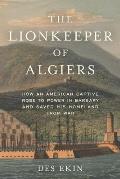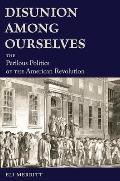The top honor went to The Lionkeeper of Algiers: How an American Captive Rose to Power in Barbary and Saved His Homeland from War by Des Ekin:
[James Leander] Cathcart was one of many captured on the high seas by the Barbary pirates, who were eager to take advantage of the young nation’s inexperience and weakness. The city of Algiers becomes a subject in the book, for its politics and physical layout made escape impossible. Ekin tells the story of how Cathcart was always in the right place at the right time. Being so fortunate, he readily took advantage of his situation to go from being the chief lionkeeper in the Dey’s personal zoo to becoming the Dey’s most important non-Muslim advisor and clerk. Although Cathchart had to endure the violent and unpredictable temperament of the Dey, he was able to take care of other American captives.Here are the two other books held up for praise.
Cathcart’s true importance was as a liaison between Algiers and the American government under President George Washington. The administration appeared inept and unable to handle the captured sailors’ predicament, so Cathcart became instrumental in negotiating for their release. Although he could have purchased his own freedom at any time, Cathcart made sure that all the Americans were well-cared for. Ekin’s book is an easy and exciting narrative, making the reader eager to turn the page to see how long Cathcart’s luck would hold out.
Disunion Among Ourselves: The Perilous Politics of the American Revolution by Eli Merritt:
Merritt argues that the men who sat in Congress between 1774 and 1783 were constantly preoccupied by fears that the states would descend into conflict over borders and resources that would shatter the Union. As a result, “the American Union was an unwelcome alliance formed by bitterly conflictual colonies”; in other words, the creation of the United States was “a shotgun wedding.”The Untold War at Sea: America’s Revolutionary Privateers by Kylie A. Hulbert:
This reconsideration of the role privateers played in the American Revolution challenges their place in the accepted popular narrative of the conflict. Despite their controversial tactics, Kylie Hulbert illustrates that privateers merit a place alongside minutemen, Continental soldiers, and the sailors of the fledgling American navy. This book offers a redefinition of who fought in the war and how their contributions were measured.



No comments:
Post a Comment